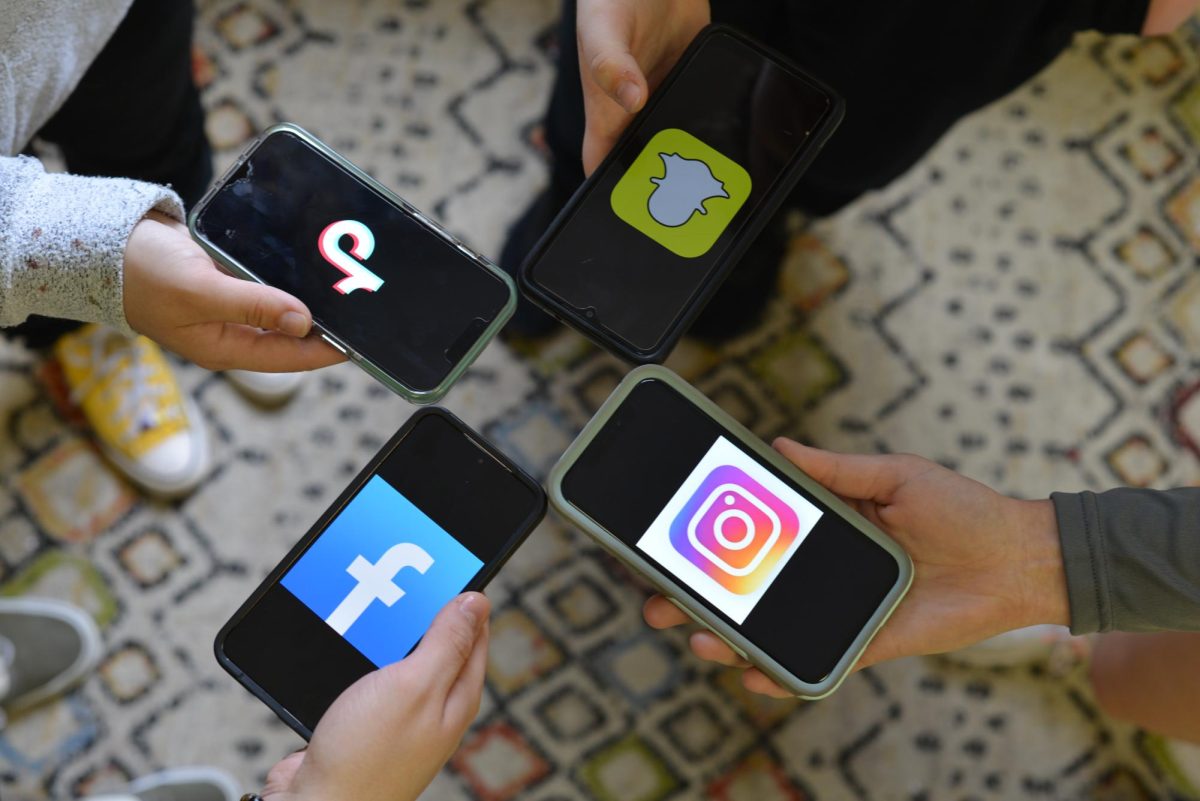From the click of a “like” button to the mindless scrolling of videos and pictures, it’s easy to lose yourself in a constant trance of shopping, liking, watching, clicking, and more. Whether it’s the chase of validation or the need to fit in with the crowd, society is immersed in the world of social media. Often the time spent scrolling comes at the expense of spending time with family or maintaining a healthy self image or improving buying habits. Sophomore Abigail Kriete is a sixteen-year-old girl who recently deleted social media for these reasons. Her lifestyle has drastically changed.
“I was spending too much time on it and I feel like everything on there was just so toxic to me. I needed to get away from it and then it eventually just led to me completely quitting it,” Kriete said.
Not only did Kriete spend too much time on media, but other teenagers spend countless hours, even as much as a 40-hour work week on their phone. According to Yale Medicine, teenagers ages 12-15, who have used social media over three hours each day face twice the risk of having negative mental health outcomes, including depression and anxiety.
Kriete confirms she is happier without social media.
“I feel like I have more time to do things that are actually healthy in my life, and it’s not just sitting in my bed for two hours scrolling on Tik Tok or [spending] every second on Snapchat,” Kriete said.
Kriete says that in her free time she now spends twice the time with her family as she did before. She also reads, enjoys the outside, and works more often. She admits that she became addicted to her phone, which took away from her time to enjoy the things that she does now.
“[Social media is addictive because of] the validation to be seen and…you want other people’s validation. You always want to be in with the trends, for sure,” Kriete said.
Kriete realized that without her phone, she does not keep up with social media trends much anymore, but as she reflects back on herself, she can see how the media and trends she was seeing had influenced her.
“I would say I found myself like, becoming what I’d see on my phone or comparing myself to what I’d see on my phone” Kriete said.
Whether it was good or bad, Kriete was becoming, and was influenced, by what she saw online. Kriete sees social media affect people a lot worse nowadays. People are constantly comparing themselves, feeling left out, and downgrading their self image. According to The U.S. Surgeon General’s Advisory, “a study conducted among 14-year-olds found that greater social media use predicted poor sleep, online harassment, poor body image, low self-esteem, and higher depressive symptom scores with a larger association for girls than boys.” Although this may be the case for most teens, this was not Kriete’s biggest struggle. Kriete was influenced the most online by what she was spending.
“I’d be scrolling through Instagram and see a little coat I like or something, and I’d be like, ‘yeah I’ll buy that.’ Or I’d see all these trends or famous people wearing something I’d like, and say ‘I want to be cool. I want to fit in, and I’ll buy that,’” Kriete said.
More time on social media means more temptation for impulsive buys. Marketing instructor Sarah Edwards acknowledges the pull toward the purchasing habits that Kriete experienced. Companies know that social media users are more likely to buy when their products are just one click away.
“[Companies] will pay money to advertise, they pay money for influencers to advertise on TikTok and on YouTube. It’s just the quickest way to market to the most amount of people and it’s worldwide, you know?” Edwards said.
Companies can and will target products exactly to you, which Edwards calls a ‘target market’.
“So if you’re looking at makeup, you’re probably looking at women who, you know, are fourteen to fifty and it can go down into even more specific groups of people, like a specific makeup is maybe for anti-aging, so it’s going to be marketed towards more mature women,” Edwards said.
These perfectly targeted products hurt Kriete the most as she was spending almost one hundred dollars every week on clothes and other items. Without Kriete’s phone constantly in her hand looking through the media, she has saved money, time, friendships, feelings, and more.
“I’ve had time to reflect on my buying habits, I’ve had time to actually hang out with my family, and I’ve had free time to actually just think,” stated Kriete, “It’s a clarity of mind really.”















